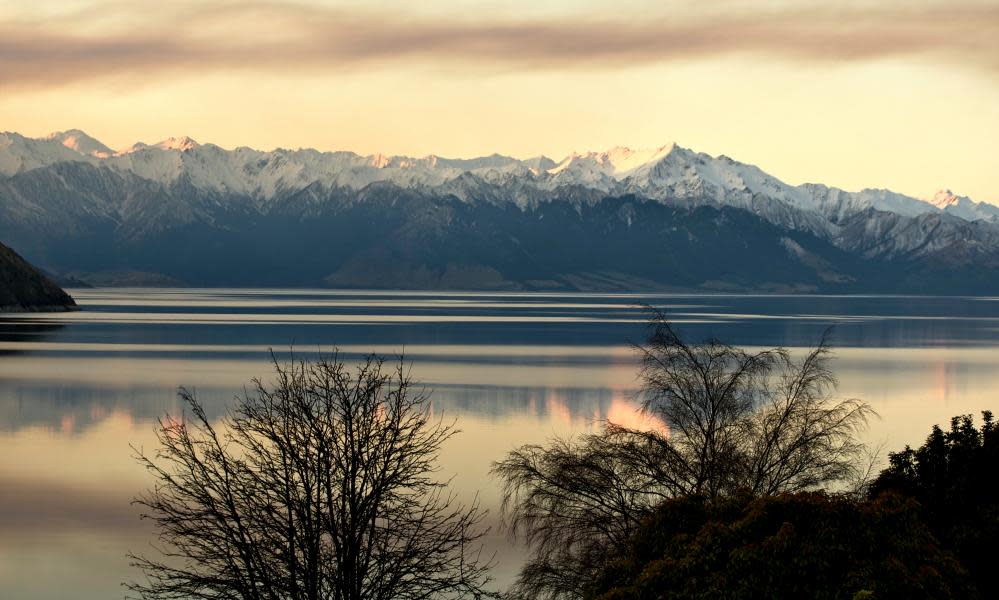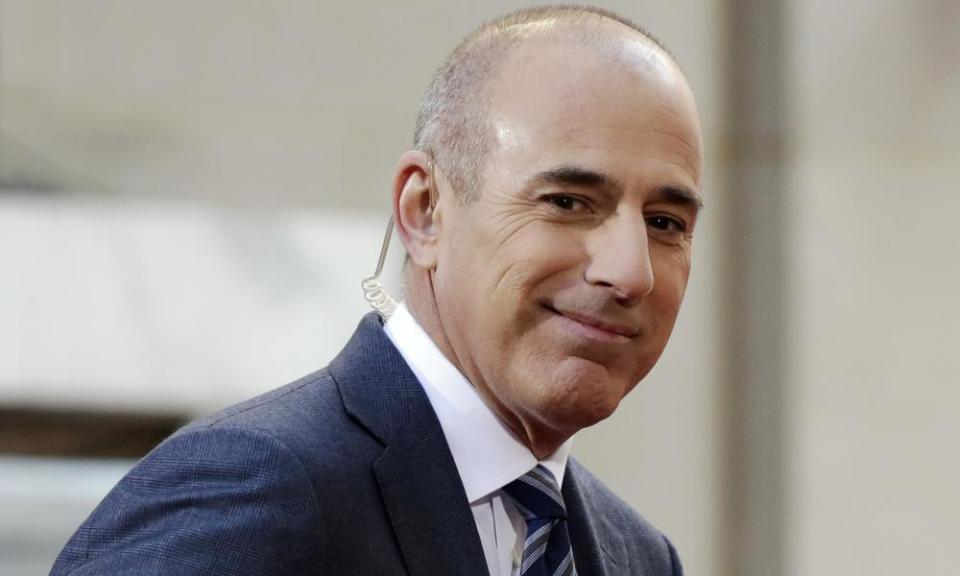Former NBC host Matt Lauer in fight with New Zealand hikers over access to land

Disgraced NBC host Matt Lauer is locked in a new fight with New Zealand hikers who want access though his South Island farm to one of the country’s most pristine conservation parks.
Lauer is facing a battle with walkers, hunters and fisherman who want greater access through his property along a 40km unsealed road leading to Hawea Conservation Park.
The route has been the source of contention for decades, as it is the only straightforward ground access route to the park, a mecca for outdoor pursuits. Lauer’s lawyer has said that if the government wants more access for the public, they will have to pay “hundreds of thousands of dollars” in compensation.
The fight comes after the country’s overseas investment office [OIO] announced it was reviewing Lauer’s lease of the iconic Hunter Valley station after he was fired from NBC’s Today show when a woman accused him of sexual misconduct. A stipulation for the lease of the property was the applicant should “continue to be of good character”.
Following a six-month investigation OIO ruled in June that Lauer could continue to lease the high-country station, a NZ$13m, 6500-hectare property on the shores of Lake Hawea.
“We have reached the position that we have insufficient evidence at this time to take proceedings against Mr Lauer for breach of the condition,” said land information New Zealand deputy chief executive policy and overseas investment Lisa Barrett.
“Mr Lauer has not been charged with any offence, nor convicted, and the evidence available to the OIO at this time does not establish that Mr Lauer is unfit to continue to hold the asset.”
Now, Lauer has been accused of preventing people from using the path through his farm.
Eric Pyle, chief executive of the walking access commission, a government body, said without increased access through Lauer’s property Hawea Conservation Park “is essentially made unusable for New Zealanders”
The walking commission is seeking managed vehicle access through the Hunter Valley for up to 100 vehicles per month in the spring and summer seasons, to be managed by the department of conservation [DOC].

“We want this to be legally secured rather than having access be at the whim of the leaseholder, as this has caused significant problems over the last several decades,” said Pyle.
“There are numerous examples across the high country and other parts of New Zealand where public access and farming operations coexist without problem, and we have stated at every opportunity that we would welcome the chance to negotiate with the leaseholder in good faith.”
But Lauer’s lawyer, Graeme Todd, said his client has upheld all of the public access conditions stipulated by the OIO in granting his lease, and has granted access to more than 100 people since taking over the land last year.
Three people had been denied permission to cross Lauer’s farm due too “farming activities, bad weather forecasts and or inappropriate vehicle”, said Todd, and others “we know have not asked and effectively trespassed”.
“The public already have access over the area for which an easement is now sought and over parts of the farm ... my client would not have any control over that as the Department of Conservation would grant the vehicle permits or indeed even know who is on the farm at any one time.”
Todd said if increased public access was granted Lauer would be entitled to compensation to the tune of “at least in the hundreds of thousands of dollars”.
The Walking Access Commission has applied to the Commissioner of Crown Lands to grant an easement over the 40km stretch of track, and said they hope Lauer will agree and waive any compensation.
“The leaseholder has indicated they wish to oppose public access, but we urge them to be a good neighbour and to contribute to the long history of managed public access in the South Island High Country” Pyle said.
The Department of Conservation has been contacted for comment.
Since coming into power last year, the Labour coalition government has banned foreigners from buying existing homes, however, the ban does not apply to foreigners who gain New Zealand citizenship – a loophole that billionaire PayPal co-founder Peter Thiel used after spending a total of 12 days in the country.
Thiel’s fast-tracked citizenship allowed him to buy multiple properties in New Zealand, even though he told the government he had no intention of living in the country, but would be an “ambassador” for New Zealand overseas instead.

 Yahoo News
Yahoo News 
